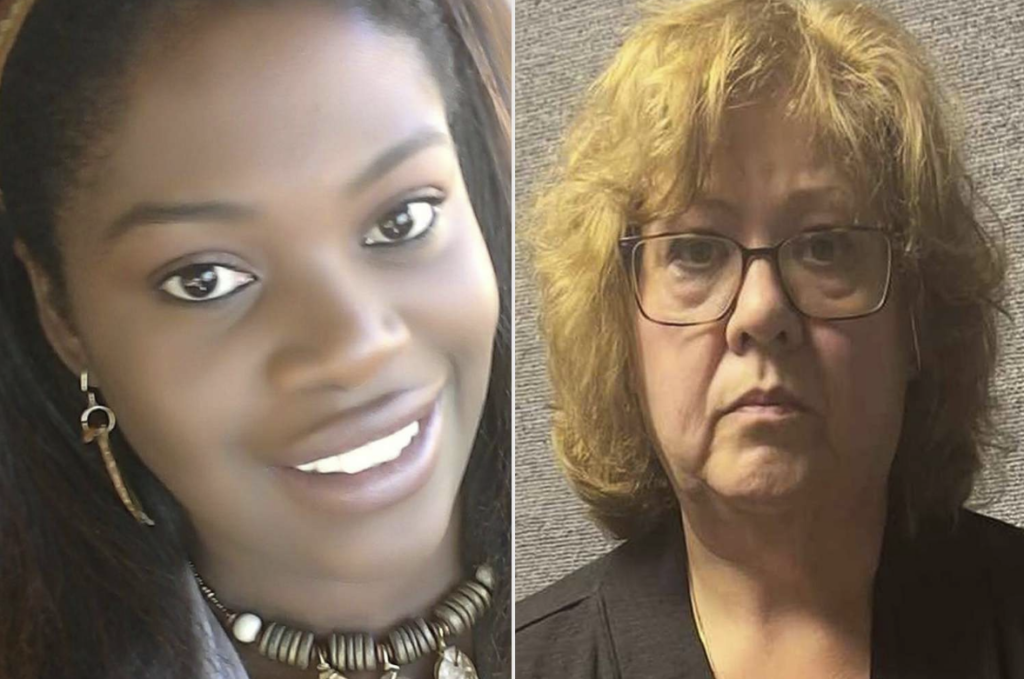In a case that reignited national conversations about gun violence and racial injustice, Susan Lorincz, a 60-year-old white woman, was sentenced to 25 years in prison on Monday, Nov. 25, for the fatal shooting of her Black neighbor, Ajike “A.J.” Owens, in Ocala, Florida.
The shooting occurred on June 2, 2023, during a dispute over neighborhood children, leaving Owens’ four children without their mother.
The Verdict and Sentencing

Lorincz was convicted of manslaughter with a firearm by an all-white jury in August 2024.
Judge Robert Hodges handed down the 25-year sentence, citing Lorincz’s anger-driven actions and her failure to call law enforcement instead of using deadly force. “The shooting was based, I find, more in anger than in fear,” Hodges said.
While Lorincz faced a maximum of 30 years, the sentence reflects the gravity of her actions. Owens’ family and their legal team, including renowned civil rights attorney Ben Crump, called the sentence a step toward justice.
“This case is a tragic reminder of the devastating consequences of gun violence,” said State Attorney Bill Gladson, whose office prosecuted the case.
A Tragic Confrontation
The fatal encounter stemmed from a long-standing conflict between Lorincz and children in the neighborhood, including Owens’ own.
On the day of the shooting, Lorincz reportedly yelled at and threw a roller skate at one of Owens’ children. Owens, accompanied by her 10-year-old son, approached Lorincz’s door to confront her.
Lorincz fired a .380-caliber handgun through her locked door, striking Owens in the chest. Owens was unarmed. Her son, who witnessed the shooting, later told family members he felt guilt for not being able to protect his mother.
Lorincz claimed self-defence, invoking Florida’s controversial “stand your ground” law, which allows individuals to use force if they feel threatened.
However, the court rejected this defense, and witnesses testified that Lorincz had a history of harassing neighborhood children and using racist slurs.
Racial Injustice and Gun Violence
The case drew widespread attention for its parallels to other high-profile shootings, including the 2012 killing of Trayvon Martin, a Black teenager, near Orlando.
Civil rights advocates criticized the delay in Lorincz’s arrest and the decision to charge her with manslaughter rather than second-degree murder.
Gladson explained that second-degree murder charges require evidence of “hatred, spite, ill will, or evil intent,” which investigators determined was insufficient in this case.
Despite the lesser charge, Lorincz’s conviction and sentencing were seen as a victory by Owens’ family and supporters.
A Legacy of Advocacy
Ajike Owens, remembered as a devoted mother, leaves behind a legacy of resilience through her family. Her children now face life without her guidance, but Crump emphasized the broader impact of the case.
“This decision sends a clear message that senseless violence will be met with accountability,” Crump said. “While nothing can erase the pain they’ve endured, this verdict is a critical step in securing justice for A.J. Owens and her family.”
